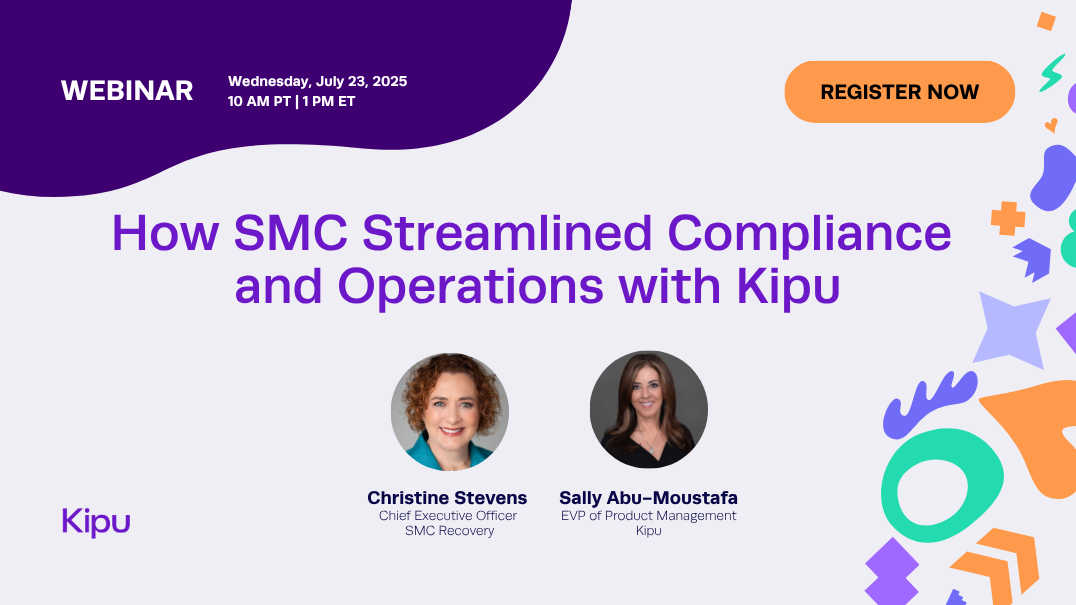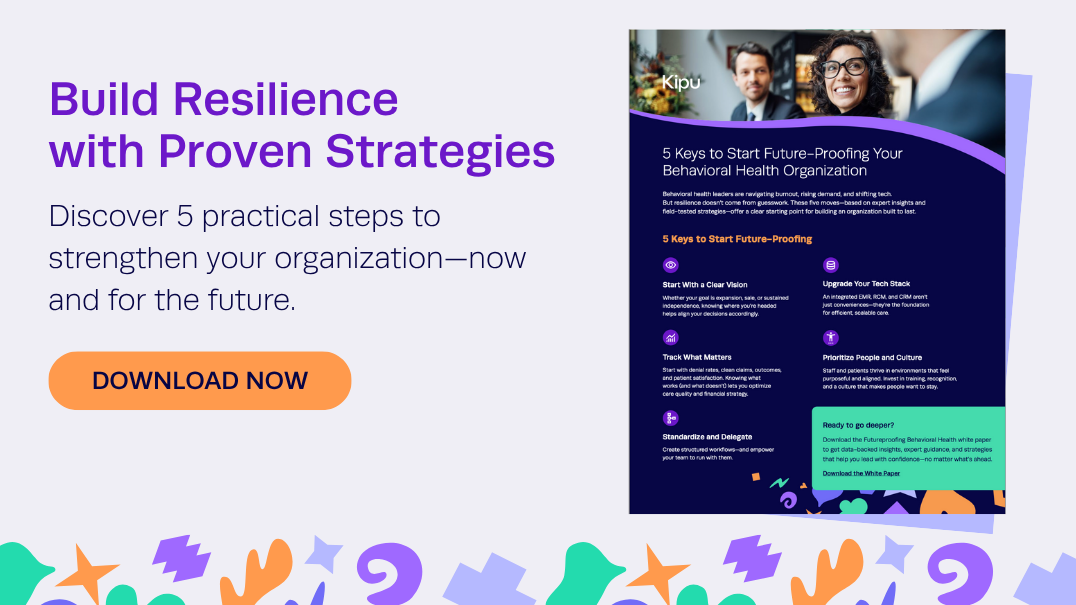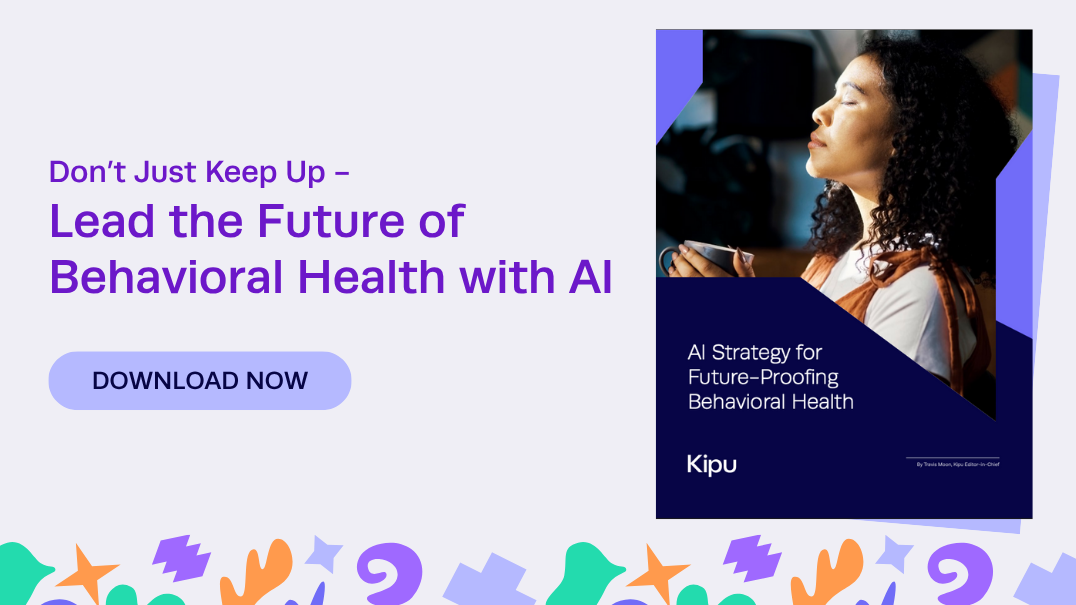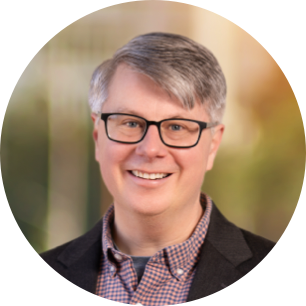Navigating the Eating Disorder Space with Dr. Anna Flores
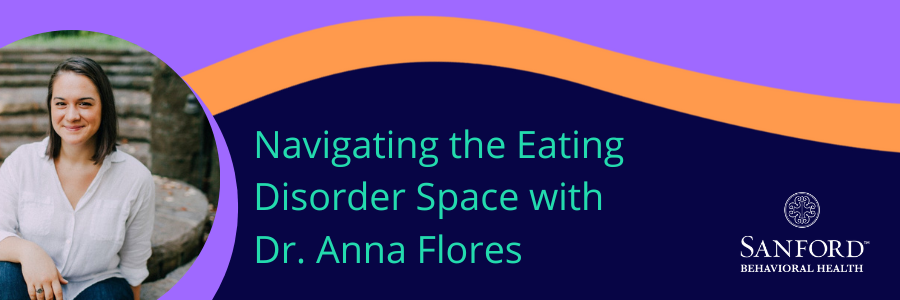
The idea that eating disorders are a lifestyle choice is a horrible misconception that is frequently held. In reality, eating disorders are severe, frequently deadly diseases that are linked to substantial abnormalities in a person’s eating habits as well as associated thoughts and feelings. Anorexia nervosa, bulimia nervosa, and binge-eating disorder are examples of common eating disorders. And all ages, racial/ethnic groups, body weights, and genders can be impacted by eating disorders. We interviewed Dr. Anna Flores DCN, MScN, CNSc, Clinical Liaison at Sanford Behavioral Health to spread awareness on the eating disorder space.
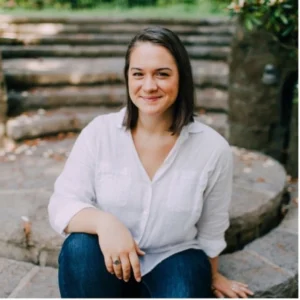
Dr. Flores is a Clinical Liaison for eating disorders and her work with Sanford House includes ensuring clients share and build partnerships in the community with trusted programs. Sanford House is the first residential treatment center for eating disorders in the entire state of Michigan. Dr. Flores came from London, England to launch this program that will impact so many individuals who struggle with ED. We were so excited to get to interview her, and here is our conversation:
Dr. Flores, how did you end up in the ED space?
Oh my gosh, this is great! I love this question. I don’t get to talk about it enough. I was getting my master’s degree in nutrition, and I was living in Portland, Oregon at the time. I was working at a Jamba Juice… so yes, my boss was 17, and I’m getting my master’s degree haha! I’m working in Jamba Juice, you know, not super healthy, but trying to put me through school. On this day, I had to bike to work, and I had a flat, so I took an Uber. And as I was chitchatting with the Uber driver, she said, “I’m a student I’m trying to get my degree to be a therapist.” Just in small talk, she told me that there was a treatment center that was opening for eating disorders. So, if I was not happy at Jamba Juice, I should apply. So, I reached out and applied. I got the job. Libby was not there on the first day. Sorry if I took the job you wanted, but I didn’t know what I was expecting or what I was doing. I just knew that I’ll be able to help people and the rest is history. I saw these clients, and I’m recovered, so I thought to myself, “well if I can help even one person… maybe it could be worthwhile.” Then, I see these clients and I just know them on sight. They’re my people. I just can’t stay away. I was hooked. I was ruthless. Positions were closed… So, I went to google! I am a millennial, so I just went into super sleuth mode. I found their staff and I made it happen. That’s all.
Since you have recovered and you work in the space, what are some myths and misconceptions about ED?
I would say the big one is… this is something that sounds dichotomous but, it is about the food but it’s not about the food. Yes, so there’s so much about it that is very much about the food and eating food and engaging in food and fluids and feeding yourself, nourishing your body. But that’s not it. There’s so much more to it about both those things at the same time. That’s why the work that we are doing at Sanford is recognizing that the dietary nutrition team is equally as important as the clinical therapy team. And that they partner together to have this multidisciplinary approach so that we can talk about both sides of the coin. Because I may come in and say oh, “I’ll eat all the food you want, but I’m not going to do the work. I’ll eat what I need to recover, but I’m not going to do the mental work. I’m not going to talk about my feelings. No, I’m not doing it. Acknowledging the hard things that I’ve been through in my life and working on those things.” Then, on the other hand, some patients say, “I’ll talk about it all and open up about my trauma. I’ll be vulnerable. I’ll be brave. I’ll talk about my struggles, and I want to work on them. I want to get better,” but they also say, “I’m not going to eat that. I’m not eating anything.” And there’s no judgment against either one, but the clients whom I see have the most success, especially long-term, are the ones that do both. The misconception is the food. And I think a lot of people either take one or the other and think they’ve got a lot of mental-emotional problems that need to be worked on. Some people think all they know is they just need to eat a cheeseburger, no.
I think another one is, when someone looks better, they are better. Someone may be struggling and may have weight restoration, but that doesn’t mean that somebody may not be sick. That’s a majority of patients with eating disorders. They present as “atypical”, meaning that they’re not clinically underweight or medically underweight. It’s funny to me that we label that as an atypical eating disorder when the majority of patients are presenting at a “normal body weight” or larger body or smaller body but may not be medically underweight. A lot of people who are suffering, unfortunately, get missed by our preconceived notions of what an eating disorder is which is not what the majority of sufferers actually are.
How can you be the best ally to someone with ED?
I’ve got some tips and tricks for being a good ally to someone with ED. About a couple of one-liners recognizing that what you say about your body is what you say about our bodies. So for instance, I happen to be with a friend of mine who had said, “I love that on you. I commend you. You’re so brave. I could never show my arms like that.” And she has a smaller body than me even. So, I feel that we go to a comparison space. Maybe I shouldn’t be showing my arms. She is trying to say to me, “I feel uncomfortable with my body.” But what she is communicating to me is that you shouldn’t be comfortable with your body. What you say about your body is what you say about other bodies. If you’re making comments about weight, shape, and size, recognize that even if you’re framing them directed to you about yourself, the people around you are going to draw conclusions from that. As well, especially, children and adolescents, and young adults. That’s my first piece, which is noticing your speech about food, weight, shape, size, and body image. Be conscious about things you say about yourself because the people who are around you are learning from you. Whether they want to or not. We’re learning from everybody in our space, so doing that work on yourself first and noticing your own beliefs about food and body image is the best.
The next piece that I would say is to learn about what they’re struggling with. Take some time and educate yourself. The National Eating Disorder Association (NEDA) is a big resource to learn about ED. There are tons of books that you can read like Eight Keys to Recovery, Life Without ED, and Eating in the Light of the Moon… love that book! Sick Enough by Dr. Jennifer Gaudiani. There are tons of them. Read about it!
Then the last piece that I would say is don’t try to fix anything. It’s not your responsibility to try to fix this person. If people are sharing their struggles with you as support, remind yourself that this is their journey. That support doesn’t mean fixing. You can’t do the work for them. What you can do is hold space for them, by listening and supporting them, telling them how you feel about them and what they mean to you, validating their struggles, and helping them help themselves. When it’s something that looks as simple as, “I’m not eating much.” The response is not, “Well just eat it. Just try it.” That’s not helpful. Or “I’ll make you a salad. What’s safe for you? I’ll fix this right now.” It’s not helpful. We enable because we care. I would say enabling 99% of the time never comes from a bad place. I had a client who told me, “I am going to college, and I was very deep in my eating disorder. My mom would drive four hours every weekend and drop off pounds of my safe foods. Pounds of Reese’s mini peanut butter cups, and bananas.” And I get it I would much rather see my loved one eat anything than nothing and I would want to help them, but you know that is not helping them.
What other triggers do we overlook?
I would say trigger is a tough word for me. Everybody has their own unique triggers, and they’re not going to be the same for everybody. On top of that, life is triggering. Here is a quote I just read, and it excited me:
There is no end to the waves… to the madness… so, we need to make space for that reality. That the waves are supposed to be there. That chaos is supposed to happen. And in all of this, our responsibility is to learn from it
We have a strategy that we use with patients called surf. We use the term surfing because you can’t stop the waves, but you can learn to surf with the ups and downs. Life itself is a triggering experience. There’s chaos, there’s drama, there’s motion, and there’s heartache. There’s a joy. There are all these things and being in full participation in your life means being a part of all those things. So, they’re going to be triggered and it’s not about avoiding triggers or insulating from triggers, it’s about acknowledging what makes this life hard for YOU. What is feeding your eating disorder? What is reinforcing your eating disorder? And how do I acknowledge those things and challenge them? Do I push those things out or live with them?
When it comes to other triggers, I would say social media is a huge one. Recognizing that it’s about being real, not perfect. I always say, “be real, don’t be perfect.” We’ve in a lot of ways, created the standards that we now feel pressured to be a part of. I think social media is setting triggers, so I went on to talk a lot about just noticing and doing a lot of internal individual work. That comes with triggers, with weight shape, size, beauty standards for a body image, and then there’s food nutrition. All those things can be triggering to someone. I would say any language that is inherently judgmental probably is triggering to someone. Words that are judgmental such as, “good” or “bad.” For instance, using “good food” or “that’s a bad food.” That’s probably going to be triggering to somebody. Then judgemental speech around food and body image. All of those things can be triggering. I don’t know if those are necessarily a secret, and it goes back to what we were just talking about, which was, “what can you do to support?” Be mindful of those things. Notice and take some inventory for yourself. You don’t have to follow these accounts that are not supportive of your recovery, or you don’t have to continuously engage in these relationships that are not supportive of your recovery. Only engage with behaviors that are in support of your recovery.
Have you seen a difference in the ED space ever since people started talking about my body positivity?
I’ve definitely seen both sides to that. There’s a lot of research talking about how social media screen time, in general, could be damaging to our health and well-being, especially our mental health and our body image. There’s emerging research that shows that supportive spaces on social media can be beneficial for people with eating disorders and they recover. New research I’m working on is a project talking about eating disorders in the LGBTQ plus youth community. I was surprised to find some new papers talking about how you can cultivate safe spaces for yourself in social media that can be supportive of your recovery. I find that it is very tempting to not use kindness and empowerment when it comes to how we treat ourselves. And speaking to me about myself and my own recovery, being in a space where there are a lot of options and a lot of choices, like on an Instagram feed for instance. I might want to go there to engage in all this recovery-focused beautiful supportive content but I’m still going to be bombarded with those other messages as well. So I ask myself, “do I have the stamina to consistently make the best choices for myself all the time?” It’s a double edge sword, but I do look at it from both perspectives. It can be helpful… it can be hurtful… And the biggest part of that is to be real with yourself. Am I in a space where I’m going to be able to consistently will that boundary? And when I’m bombarded with negative messaging, can I say, “nope, you’re not helpful to me.” Some days you may think your eating disorder is really loud. Telling yourself, “I feel like garbage. I feel like I don’t deserve anything. I don’t feel like I’m worth it.” You punish yourself and look at these “fit inspo” accounts. You think, “I could be better and I should look like that.” That will bring frustration. But social media is helpful, and I’ve seen it be helpful.
We have a social media group that we do with clients where they bring out their cell phones and we talk about all of their social media platforms. We don’t just talk about it, they pull them up and we go through all the accounts that they’re following. They talk honestly about “why” nobody’s forcing them, they choose, but we guide them by saying, “well that sounds like this is hurting you. You choose. Is this something you want to continue to engage with, or not?”
How can someone build a better relationship with their body and food?
I’m actually doing a food and body image workshop at the request of quite a lot of people in the Michigan community. Some tips I have are:
- Notice how you speak to yourself about yourself. Notice how you speak to others about yourself and your beliefs. And when I say notice, I mean truly notice without judgment. “Oh, I noticed that I am avoiding toast for breakfast this morning. I’m making a conscious decision to not have toast this morning. No judgment or anything. Just noticing.” Notice your choices and behaviors. What are the choices that you make when it comes to you? How do you feed yourself? How do you move your body? How are the choices you make to live your life?
- Reflect. Reflect on if those beliefs and choices are aligned with the life that you want to be living. Or are these things taking away from the life that you want to be living? If you want to be the girl who goes on a date and brings a bottle of Ensure, I have no judgment about that. But, reflect… I would still think that you were an incredible person and an asset to the world, regardless. But, if it is taking away from the life that you want to live with, are you thinking, “I wish it were different? That’s not aligning. This is not aligned with my true self.” That tells you, “OK these are things that need to change.” If you’re noticing, “I am talking down to myself” or “I’m dressing in clothes that I am not really excited about. I wish I was a different size. I wish I could dress like that person.” I’m letting you know that what you’re doing is taking away from the life you want to be living. That’s where there’s an opportunity to change.
- Reflection. It is reframing and utilizing skills, getting help to reframe our thoughts and our internal dialogue. Be less judgmental and start saying the things that you wish you could believe. It will make you feel better. It’s so true. With clients, I use an exercise called, “eating disorder versus healthy self-dialogue,” which is where they get a journal and they write their eating disorder and thought, whatever they might be. It might be “I’m fat, hideous, and annoying.” That’s something that their authentic self would say, and even if they can’t find authenticity and tap into it, they just write what they know would be the right answer. For instance, “I have value. I’m lovable. I’m unique.” Or none of that’s true, whatever it might be. Whatever makes sense and they just keep writing and the eating disorder keeps rebutting. So, they just keep doing it, again and again, and it takes about 50 of those for them to even start to feel authentic for a patient. It’s important to start giving yourself some grace and some space to say, “this is uncomfortable. I feel like a fraud when I do this right now.” You’re not going to just magically overnight step into this magical awakening. It’s small steps over time that create beauty.
I loved your thought process. Hearing you mention, “that girl that takes ensure to dinner” followed by, “no judgment, but does that align with whom you want to be?” I loved that thought process and how you got to your conclusion.
Thank you I appreciate that. I have no judgment. I am a Doctor of Clinical Nutrition. Food is literally my life’s work and my passion. But also, the way that I feed myself it’s not my business card. All these things I truly mean. I want to walk the walk. I want to talk the talk. That’s all fine, but if for one second you tell me I wish it were different… I’m going to call you out on it. Because then it sounds like you’re not aligning with your values. Let’s figure out what they are!
What are some resources that people can go to?
- National eating disorder association (NEDA) – Has all the resources, information, and tools.
- National Association of Anorexia Nervosa and Associated Disorders (ANAD) – Offers free support groups and peer mentors.
- Michigan Eating Disorders Alliance (MiEDA)
- Alliance for Eating Disorders
- The International Association of Eating Disorders Professionals Foundation – Sanford is a member of this association.
- Association for Size Diversity and Health (ASDAH) and their Health at Every Size (HAES) principles – Has resources, support, and training for everyone that wants to adopt the health at every size philosophy.
- National Association for Males with Eating Disorders (NAMED)
- Project HEAL
- Gaudiani Clinic – Their blog is a great resource.
- Sanford Behavioral Health – We’ve been able to build fantastic partnerships and hire great clinicians. We also have a stock of resources for clients to use as well.
Is there something we haven’t touched on that you want to communicate to readers?
Yes. I say this literally all the time and it’s become my tagline, “your body is the least interesting thing about you.” I say that lovingly and with respect to all bodies. For instance, OK cool you got Brown eyes… me too… where do we go from here? Whereas, “I have a dog.” “Oh, I have a cat! How long have you had him? Oh, what’s his name?” It’s so much easier to connect with people on a human level when we talk about what makes us human. I think with eating disorders it’s easy to get wrapped up in the lies that we tell ourselves, that our body is the most important thing about us. When it comes to building genuine human connections, whether they’re short-term, long-term, or somewhere in between, your body doesn’t usually come up and the ones that may be built on those things are not deep and meaningful.
Another one that I always say to anyone who needs to hear it is, “you have permission to eat. You deserve food. You have permission to nourish your body.” I always like to share that whenever I’m talking about eating disorders in general because there’s almost always someone in the room who needs to hear, “you have permission. You deserve food.”
Another thing that I just didn’t touch on is that all bodies deserve kindness and respect. One of my patients taught me that. She said, “body positivity is aggressive. It’s unattainable to me. It feels like a fantasy. I can’t get on board.” And she also said, “I understand body neutrality, which is: I don’t love my body, but I don’t hate it. And that’s more approachable… But I can’t get there either. My body image is really suffering.” So, I told her, “well what do you want to hear that would support you?” She replied, “I have been able to tell myself that my body at the very least deserves respect.” And I thought, oh my gosh! I’m putting that in my pocket! I’m bringing it everywhere! Regardless of how you feel about your body. It deserves respect and it’s how you treat yourself and others. To hate your body doesn’t mean that you don’t deserve to have boundaries. Because body positivity is like a gratitude practice. These are all challenging things. That’s why I try to use less judgmental words or words with less negative connotations. If gratitude practice is not your thing because life sucks right now, then you don’t have to do it. You can write three things that you noticed. Write something if you’re going to journal, right? Three things that you noticed happened to you.
Also, again our culture can use body positivity as a weapon against us because somebody can’t love themselves out of the oppressive system we exist in. You can’t love yourself out of systemic poverty, and racism, which is affecting your experience in this world. You can’t just love yourself out of that. Loving myself is not going to give me equal access to opportunities, food, and resources. I’m always thinking about what that client taught me so long ago, which was respect. I hope everybody that they get to experience those parts of life right that are sparkly, shiny, magical, happy, joyful and all these beautiful things. But that’s not realistic for it to be that way all the time and it’s OK. Just don’t ever forget that even when it’s not all those fuzzy things, or even when it’s the hard stuff, or the chaos, you still deserve respect. You still are a valuable person and, especially those who are struggling, don’t let the positive side of social media gaslight you either. You don’t have to love yourself and you can’t love yourself out of all these problems. You can’t gratitude your way out of all these problems. Always think that the things you’re struggling with are very real and I don’t want to invalidate that by saying, if you only ate, it would be better or if you only eat, you’ll love yourself. It won’t help you get closer to the life that you want to live, that you deserve. At the very least, respect yourself.
If you, or someone you love, are looking for treatment professionals in your area, please contact the National Eating Disorders Association (NEDA) Helpline Monday through Thursday, 9am-9pm or Friday 9am-5pm ET at 800.931.2237 or www.nationaleatingdisorders.org/helplinechat for online and in-person treatment options. To search through our online treatment provider database, please visit https://www.nationaleatingdisorders.org/find-treatment.
Rely on Kipu to keep you ahead of change.
Subscribe to Kipu for behavioral health news, updates, community celebration, and product announcements.

